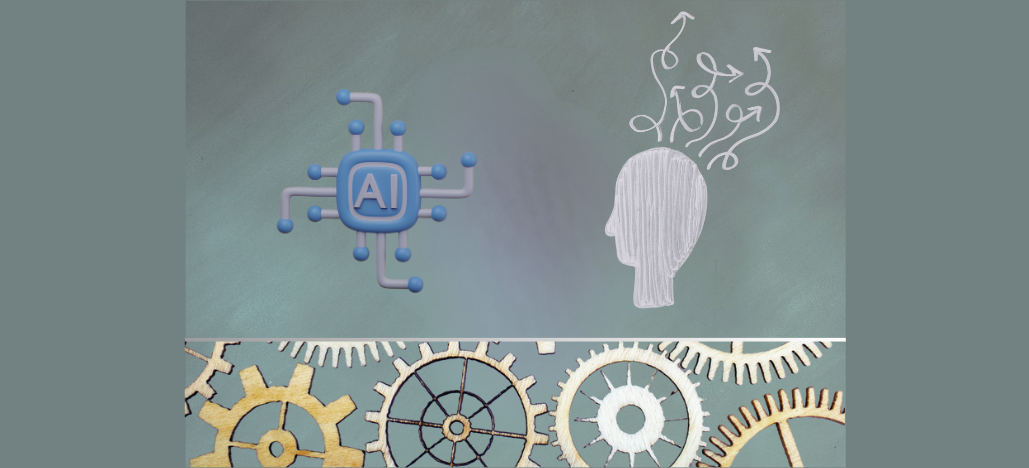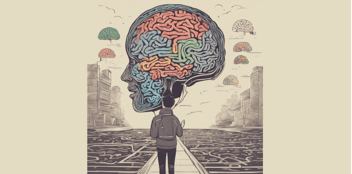AI-Powered ADHD treatment using Dr. Holo - My patient’s story
- Home
- Blog

In the modern age, we're increasingly recognizing that ADHD is not a one-size-fits-all diagnosis. Especially in adults, the lines between ADHD, cognitive impairment, and other neurobiological disorders can blur. I recently treated a complex case involving a patient who presented with ADHD-like symptoms. However, the story wasn’t as simple as a straightforward diagnosis of adult ADHD. This patient had no history of childhood ADHD, and their cognitive problems seemed to stem from a mix of genetic variations, gut dysbiosis, and lingering effects of post-COVID syndrome.
In this blog, I will walk you through how I used our AI-powered agent, Dr. Holo, to not only diagnose the underlying causes of this patient's cognitive challenges but also to create a personalized, targeted treatment plan that addressed the root causes. This case is an excellent example of how advanced AI can help clinicians go beyond symptom-based treatment and delve into the intricate web of biological, psychological, and environmental factors that affect cognitive health.
Dr Holo enhances our Precision Psychiatry approach.
Complex symptoms and a complex patient
When this patient first arrived in my office, they reported cognitive fog, inattentiveness, and an inability to focus for long periods—classic ADHD symptoms. But something didn’t quite add up. The patient had functioned perfectly well as a child and adolescent, without any significant academic or behavioral issues. The onset of their symptoms was much later, in their mid-30s, after a bout of COVID-19 and subsequent gut-related problems.
I knew I needed to dig deeper, and that’s where Dr. Holo became indispensable.
Using Dr. Holo to diagnose the root causes.
Instead of jumping straight to an ADHD diagnosis, I prompted Dr. Holo to assist me in a comprehensive evaluation. I inputted the patient’s medical history, focusing on their post-COVID syndrome, gut health, and genetic predispositions. Dr. Holo quickly suggested a multi-layered approach: looking into the patient’s methylation pathways, inflammatory markers, and gut microbiome composition to uncover hidden factors driving the cognitive symptoms.



I ordered several of the tests that Dr. Holo recommended, and here is what he helped uncover, which was quite fascinating:
Genetic Variations: The patient had certain polymorphisms in genes related to neurotransmitter metabolism, which increased their susceptibility to cognitive dysfunction under stress, particularly after an inflammatory event like COVID-19.
Gut Dysbiosis: Post-COVID, the patient had developed significant gut dysbiosis. The connection between the gut and brain—often referred to as the gut-brain axis—can play a huge role in mood regulation and cognitive performance. Imbalances in gut bacteria were likely exacerbating the patient’s attention problems.
Post-COVID Neuroinflammation: Post-viral inflammation, particularly following COVID-19, can lead to brain fog and cognitive decline. This patient’s cognitive issues weren’t just ADHD—they were driven by lingering neuroinflammation that traditional ADHD medications alone wouldn’t address.
I asked a follow-on question to Dr. Holo which included providing him the data from these tests, and asked him to explain possible underlying mechanisms for my patient’s problems, and how to treat them. He not only provided me a comprehensive analysis he also included a sophisticated treatment plan to consider prescribing for for my patient!



Tailored treatment: more than ADHD medication
With Dr. Holo’s insights, I was able to create a comprehensive treatment plan that went beyond the standard ADHD prescription. While the patient did benefit from some low-dose stimulants to improve attention and focus, that was just one part of the plan.
The real breakthrough came from addressing the underlying root causes of the patient’s symptoms:
Gut health restoration: We implemented a gut repair protocol, focusing on prebiotics, probiotics, and specific strains of bacteria known to support cognitive function.
Anti-inflammatory support: Supplements like omega-3 fatty acids, curcumin, and a tailored antioxidant regimen helped to reduce neuroinflammation.
Targeted nutraceuticals: Based on the patient’s genetic profile, we added in targeted B-vitamins and other methylation support to enhance neurotransmitter production and processing.
The outcome: cognitive function restored
Within weeks, the patient reported marked improvements. Their focus and cognitive clarity returned, and they felt more like themselves again. This case was a powerful reminder that cognitive disorders like ADHD don’t always fit into neat diagnostic boxes. Thanks to Dr. Holo, I was able to unravel the root causes of this patient’s cognitive challenges and provide a treatment plan that was as unique as the patient.
How AI can transform ADHD treatment
The beauty of AI-powered treatment plans is its ability to integrate vast amounts of data—from genetic markers to microbiome profiles—to generate a holistic view of each patient. In this case, without Dr. Holo’s help, it would have taken significantly longer to identify the underlying root causes of the patient’s cognitive issues.
As we continue to integrate AI into psychiatric care, we have the opportunity to offer more personalized, precise treatments that address the root causes of complex disorders. Whether it’s ADHD, cognitive fog, or other neuropsychiatric conditions, AI-powered agents like Dr. Holo are helping us move toward a future of medicine that’s as nuanced and individualized as each patient.
Final thoughts
This case demonstrated the power of using AI in psychiatric care, particularly for complex cases where multiple factors contribute to a patient’s cognitive health. By combining AI insights with a Root Cause Psychiatry™ approach, we can tailor treatments to each patient's unique needs, ensuring better outcomes and long-term wellness.
.png?width=144&height=144&name=Untitled%20design%20(34).png)



